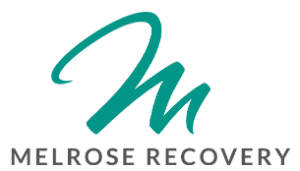Metaxalone Addiction
Metaxalone Addiction – Welcome to Melrose Recovery, your pathway to transformation and healing. Located in the vibrant heart of Los Angeles, California just moments away from iconic Hollywood and the picturesque beaches of Santa Monica and Venice, we are dedicated to changing lives. Since 2015, our comprehensive Naltrexone abuse treatment approach encompasses detoxification, residential care, and aftercare services, all tailored to meet each couples or individual’s unique needs on their recovery journey.
Led by a compassionate team of addiction professionals and counselors, we offer a range of therapy programs designed to support and guide individuals suffering Metaxalone side effects toward lasting sobriety. At Melrose Recovery, we believe in the power of personalized care and diverse treatment options to pave the way for a brighter future.

Exploring the Risks and Side Effects of Metaxalone: A Muscle Relaxant in the Spotlight
As the opioid crisis continues to challenge the healthcare system, providers are turning to alternative treatments for pain management. One such option is metaxalone, a muscle relaxant that works by targeting the central nervous system (CNS) to reduce muscle spasms and related pain. Though considered less addictive than opioids, metaxalone carries its own risks—including potential for dependence, overdose, and serious side effects—particularly when misused or used long-term.
Increasing Use of Muscle Relaxants for Chronic Pain
Originally intended for short-term relief (typically up to three weeks), muscle relaxants like metaxalone are now being prescribed more frequently for chronic pain, a trend that raises concern among medical professionals. According to Penn Medicine News, nearly 70% of patients prescribed muscle relaxants in 2016 were also taking opioids—an alarming combination that significantly increases the risk of addiction, misuse, and overdose.
Common Side Effects and Interactions
Metaxalone can cause side effects such as:
-
Drowsiness
-
Dizziness
-
Nausea
-
Headaches
-
Gastrointestinal upset
These effects may intensify when metaxalone is combined with other CNS depressants, like opioids or alcohol, increasing the risk of respiratory depression, sedation, and even fatal overdose. The drug can also produce calming or euphoric sensations, which some individuals may seek out recreationally, further elevating the risk of tolerance, misuse, and addiction.
Dependence and Addiction Risk
Although metaxalone addiction is rare, it can develop with prolonged use—particularly in individuals with a history of substance use disorder. Over time, users may build a tolerance to the drug, leading to psychological and physical dependence. Withdrawal symptoms are generally milder than those from opioids but can still cause discomfort and trigger ongoing use.
Professional treatment programs, such as those offered at Melrose Recovery in Los Angeles, provide structured detox and support for individuals struggling with metaxalone dependence, helping them taper off the drug safely and effectively.
Can Metaxalone Cause Anemia?
Yes, though rare, metaxalone can cause hemolytic anemia, a condition where red blood cells are destroyed faster than they can be replaced. This is more likely in individuals with existing anemia or a predisposition to it. While the exact mechanism is unclear, it may involve immune responses or oxidative stress triggered by the drug or its byproducts.
In a documented case published by the Journal of Community Hospital Internal Medicine Perspectives, a woman developed hemolytic anemia after taking metaxalone. She recovered following discontinuation of the drug and treatment with glucocorticoids and rituximab, highlighting that with prompt medical care, these adverse effects are manageable.
Does Metaxalone Cause Nausea?
Nausea is a common side effect of metaxalone, often accompanied by vomiting or stomach discomfort. It can be caused by irritation of the stomach lining, especially at higher doses, or by its effects on the CNS, which can disrupt neurotransmitter balance and trigger gastrointestinal issues.
When combined with other CNS depressants, nausea-related risks increase. In severe cases, individuals may lose consciousness and vomit, posing a life-threatening risk of aspiration—inhaling vomit into the lungs—which can lead to respiratory complications or death.
Can Metaxalone Cause Headaches?
Yes. Headaches are a frequently reported side effect of metaxalone, often linked to its sedative effects. The drug may also influence blood vessel tone in the brain or cause mild dehydration, both of which are known headache triggers. Taking metaxalone with alcohol or opioids can worsen these symptoms and contribute to more serious health risks, including respiratory failure.
Is Metaxalone Harmful to the Liver?
Metaxalone is metabolized in the liver, which can be problematic for individuals with liver disease or when taken in high doses over an extended period. While it’s generally considered to have a lower risk of liver damage than some medications, combining it with alcohol or other hepatotoxic substances can increase the chance of liver strain or injury. Caution is advised, especially for those with existing liver conditions.
Seeking Help for Metaxalone Misuse or Side Effects
Though not widely misused, metaxalone can lead to dependence—particularly when used long-term, combined with other substances, or taken for its calming effects. If you’re struggling with stopping metaxalone or experiencing withdrawal symptoms, Melrose Recovery offers customized treatment plans to help address the underlying causes of misuse and guide you toward recovery.
Their medical detox program supports safe tapering and helps alleviate withdrawal symptoms, increasing your chances of a successful, long-term recovery.
Contact Melrose Recovery Today
If you or a loved one is dealing with metaxalone side effects, misuse, or addiction, call Melrose Recovery at 714-442-7782 to learn about your treatment options. With expert support and compassionate care, recovery is within reach.
Frequently Asked Questions About Metaxalone
What is metaxalone?
Metaxalone is a prescription muscle relaxant used to relieve discomfort associated with acute musculoskeletal conditions such as muscle spasms, strains, or sprains.
How does metaxalone work?
It acts on the central nervous system (CNS) to reduce nerve signals responsible for muscle spasms, thereby easing muscle pain and discomfort.
Is metaxalone an opioid?
No, metaxalone is not an opioid. It is classified as a skeletal muscle relaxant.
What is the brand name of metaxalone?
The most well-known brand name is Skelaxin.
Is metaxalone a controlled substance?
No, metaxalone is not currently classified as a controlled substance in the U.S.
What is the usual dosage of metaxalone for adults?
The typical adult dosage is 800 mg taken three to four times daily.
How long should I take metaxalone?
It is generally prescribed for short-term use, typically up to three weeks, unless otherwise directed by a physician.
Can metaxalone be taken with food?
Yes, it can be taken with or without food, although taking it with food may reduce stomach upset.
Is metaxalone effective for chronic pain?
No, it has not been proven effective for chronic pain and is intended for short-term, acute muscle conditions.
Can metaxalone be used in children?
It is generally not recommended for children under 12 years of age.
What are the common side effects of metaxalone?
Common side effects include drowsiness, dizziness, nausea, headache, and gastrointestinal discomfort.
Can metaxalone cause drowsiness?
Yes, drowsiness is one of the most frequently reported side effects.
Does metaxalone cause nausea? – Metaxalone Addiction
Yes, nausea and vomiting are possible side effects, especially at higher doses.
Can metaxalone cause headaches? – Metaxalone Addiction
Yes, headaches are a known side effect and may be linked to its CNS depressant effects.
Can metaxalone damage the liver? – Metaxalone Addiction
While rare, liver damage may occur, especially in people with pre-existing liver conditions or those using it long-term.
Is metaxalone addictive? – Metaxalone Addiction
While not highly addictive, there is still a risk of dependence, especially with long-term use or in people with a history of substance abuse.
Can metaxalone be taken with alcohol? – Metaxalone Addiction
No, combining metaxalone with alcohol can increase the risk of drowsiness, sedation, and potentially fatal respiratory depression.
Can metaxalone be taken with opioids? – Metaxalone Addiction
It should be used cautiously with opioids due to the risk of enhanced CNS depression and overdose.
What happens if you overdose on metaxalone? – Metaxalone Addiction
Symptoms may include extreme drowsiness, respiratory depression, unconsciousness, and potentially death—especially when combined with other depressants.
Can metaxalone cause anemia? – Metaxalone Addiction
Yes, though rare, it has been linked to hemolytic anemia, a condition where red blood cells are destroyed faster than they can be replaced.
What are the signs of metaxalone dependence? – Metaxalone Addiction
Signs include needing higher doses for the same effect, using it to cope with stress or anxiety, and experiencing withdrawal symptoms when stopping.
What are withdrawal symptoms from metaxalone? – Metaxalone Addiction
Symptoms may include anxiety, irritability, restlessness, headaches, and sleep disturbances.
Can psychological dependence develop with metaxalone? – Metaxalone Addiction
Yes, especially in individuals using it for stress relief or relaxation beyond its intended medical use.
Is detox needed for metaxalone dependence? – Metaxalone Addiction
In some cases, yes. Medical detox may be recommended to manage withdrawal safely and reduce the risk of relapse.
Where can someone get help for metaxalone misuse? – Metaxalone Addiction
Facilities like Melrose Recovery in Los Angeles offer comprehensive detox and addiction treatment programs tailored to prescription drug misuse.
Don’t Wait to Look for a Drug Addiction Treatment Program
Health Insurance PPO Plans for Metaxalone Addiction Rehab
PPO Plans for Melrose Recovery Metaxalone Addiction in Los Angeles, California
Finding effective treatment for drug and alcohol addiction is one of the most important steps in the recovery journey. For many individuals and families, navigating how to pay for rehab can be a major concern. Fortunately, Melrose Recovery, a leading addiction treatment center in Los Angeles, California, accepts a wide range of PPO (Preferred Provider Organization) health insurance plans, making high-quality care more accessible and affordable.
Why Choose Melrose Recovery?
Melrose Recovery offers a structured and supportive environment for individuals seeking recovery from substance use disorders. Their programs include:
-
Medical Detox
-
Residential Inpatient Treatment
-
Dual Diagnosis Treatment
-
Individual and Group Therapy
-
Aftercare Planning
What sets Melrose apart is their client-centered approach, experienced clinical team, and commitment to long-term recovery. Located in Los Angeles, the facility provides a safe and comfortable setting to begin healing.
What Are PPO Insurance Plans?
PPO insurance plans allow policyholders to see healthcare providers both inside and outside of their insurance network, usually without a referral. When it comes to addiction treatment, this flexibility can be vital.
Key PPO benefits for rehab coverage:
-
Out-of-network options: You can still receive coverage for facilities not directly in your provider’s network.
-
No referral needed: You don’t need a referral from a primary care physician to start treatment.
-
More provider choices: PPO plans give you more freedom to choose the rehab facility that fits your needs.
Does Melrose Recovery Accept My PPO Insurance?
Melrose Recovery works with most major PPO insurance providers, including but not limited to:
- Aetna
- AmeriHealth
- Anthem
- Blue Cross Blue Shield
- Cigna
- Hawaii Medical Service Association (HMSA)
- Humana
- Kaiser Permanente
- Medical Mutual
- Premera Blue Cross
- UnitedHealthcare
Melrose Recovery’s admissions team is available 24 hours a day 714-442-7782 to verify your insurance benefits quickly and confidentially. This process helps determine your coverage, deductible, co-pays, and out-of-pocket maximums before starting treatment.
Verifying Insurance Coverage
To find out if your PPO insurance plan covers treatment at Melrose Recovery:
-
Call Melrose Recovery directly – Speak with an admissions specialist who can walk you through the insurance verification process.
-
Submit insurance info online – Many treatment centers, including Melrose, offer a secure online form for quick verification.
-
Check with your insurer – You can also contact your insurance company directly and ask about your behavioral health benefits.
The Importance of Getting Help
Addiction is a chronic and progressive condition—but with the right support, recovery is absolutely possible. By accepting a variety of PPO plans, Melrose Recovery helps reduce financial barriers to care, so individuals and families can focus on healing rather than costs.
Take the First Step Today
If you or a loved one is struggling with addiction, don’t wait. Melrose Recovery in Los Angeles offers compassionate, evidence-based care in a supportive setting. With PPO insurance coverage, treatment may be more affordable than you think.
Contact Melrose Recovery today to learn more about admissions and insurance verification. Your path to recovery can start now.





Get In Touch
info@melroserecovery.com
501 North Mariposa Ave, Los Angeles, CA 90004



